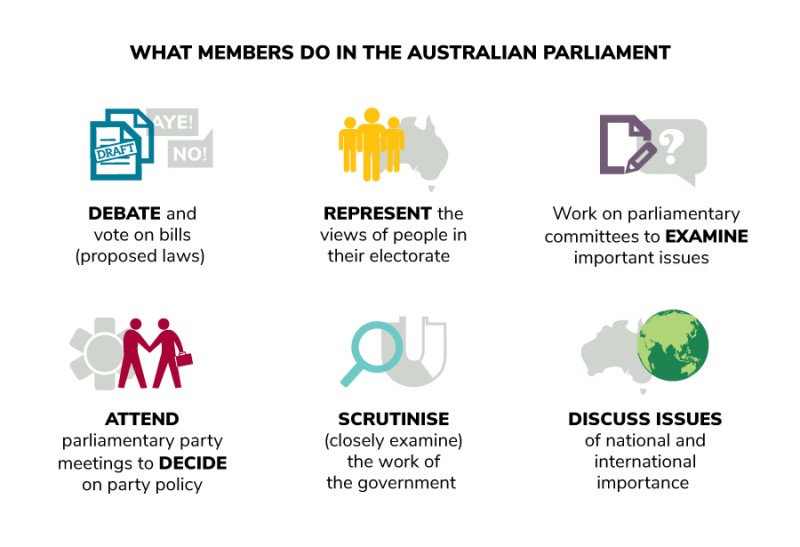Why do you often see just a few members sitting in the houses?
With the exception of Question Time, senators and members are rarely all present at the same time in the Senate or House of Representatives. Members of parliament are very busy and much of the work they do takes place outside of the Senate or House. This work can include participating in committee meetings, contributing to debates in the Federation Chamber or speaking with the people they represent or media.
Members of parliament are still able to follow what is happening in the Senate and House on televisions in their offices and on the internet. Their staff will also keep up to date with what is currently being discussed and follow the Notice Paper – the day’s schedule. Senators may enter and leave the Senate to contribute to a debate at any time. Likewise, members may enter the House of Representatives. Members of parliament may also choose to attend to show support to those who are speaking.
There are rules that require a minimum number of senators and members to attend meetings. This is called ‘quorum.’ In practice though, quorum is not always reached throughout the entire meeting. The President of the Senate or Speaker of the House of Representatives will only ask for a quorum if a senator or member asks them to. The work of Parliament can continue without quorum.
What members do in the Australian Parliament

Parliamentary Education Office (peo.gov.au)
Description
Members of the House of Representatives:
- debate and vote on bills – proposed laws
- represent the views of people in their electorate
- work on parliamentary committees to examine important issues
- attend parliamentary party meetings to decide on party policy
- scrutinise – closely examine –the work of the government
- discuss issues of national and international importance.
This work is licensed under a Creative Commons Attribution-NonCommercial-NoDerivs 3.0 Unported License.
You are free to share – to copy, distribute and transmit the work.
Attribution – you must attribute the work in the manner specified by the author or licensor (but not in any way that suggests that they endorse you or your use of the work).
Non-commercial – you may not use this work for commercial purposes.
No derivative works – you may not alter, transform, or build upon this work.
Waiver – any of the above conditions can be waived if you get permission from the copyright holder.
